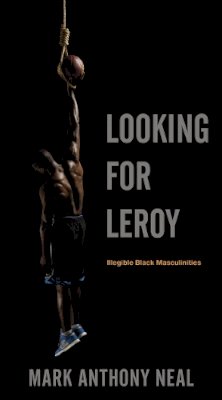11%OFF

Stock image for illustration purposes only - book cover, edition or condition may vary.
Looking for Leroy: Illegible Black Masculinities
Mark Anthony Neal
€ 30.99
€ 27.65
FREE Delivery in Ireland
Description for Looking for Leroy: Illegible Black Masculinities
Paperback.
Mark Anthony Neal’s Looking for Leroy is an engaging and provocative analysis of the complex ways in which black masculinity has been read and misread through contemporary American popular culture. Neal argues that black men and boys are bound, in profound ways, to and by their legibility. The most “legible” black male bodies are often rendered as criminal, bodies in need of policing and containment. Ironically, Neal argues, this sort of legibility brings welcome relief to white America, providing easily identifiable images of black men in an era defined by shifts in racial, sexual, and gendered identities.
... Read more
Product Details
Format
Paperback
Publication date
2013
Publisher
New York University Press
Number of pages
224
Condition
New
Number of Pages
224
Place of Publication
New York, United States
ISBN
9780814758366
SKU
V9780814758366
Shipping Time
Usually ships in 7 to 11 working days
Ref
99-1
About Mark Anthony Neal
Mark Anthony Neal is the James B. Duke Distinguished Professor at Duke University. He is the founding director of the Center for Arts, Digital Culture and Entrepreneurship (CADC) at Duke, and co-directs the Duke Council on Race and Ethnicity. He is the author of Looking for Leroy: Illegible Black Masculinities, New Black Man, 2nd edition, Soul Babies: Black Popular Culture ... Read more
Reviews for Looking for Leroy: Illegible Black Masculinities
Leroymines the contradiction between epistemologies and realness of self-making in relation to black men in popular culture. Neal has crafted an accessible text that creatively renders our understanding of black men as alien, offering complex connections between spatiality, cosmopolitanism, sound, and desire.-,r
Jared Richardson
The Black Scholar
Looking for Leroyis a fascinating study of Black masculinity.
... Read more
Jared Richardson
The Black Scholar
Looking for Leroyis a fascinating study of Black masculinity.
... Read more
